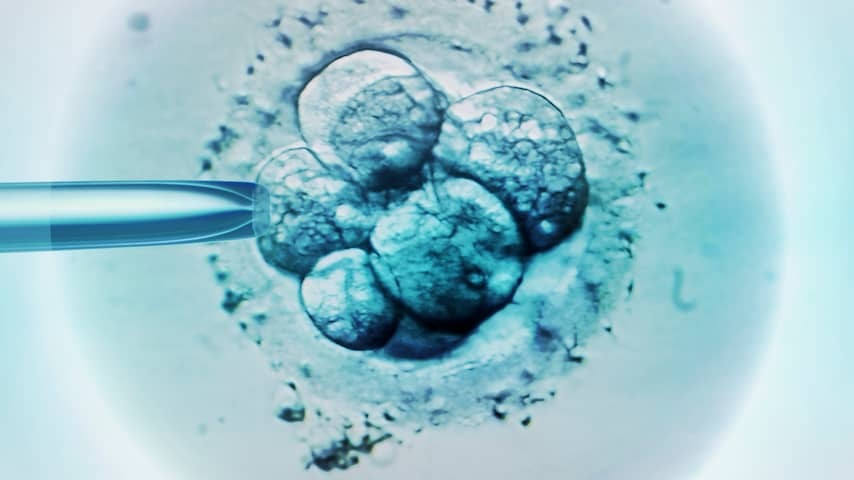
In the United Kingdom, eight healthy children have been born through a special treatment that uses the DNA of three people each time. The new IVF technique makes the children much less likely to develop life-threatening diseases.
The mothers of the eight children had mutations in parts of their cells. As a result, there was a high chance that they would pass on life-threatening diseases to their children. With this new technique for in-vitro fertilization (IVF), doctors can bypass those mutations, according to research in The New England Journal of Medicine.
The mutations are located in the so-called mitochondria. These are cell structures that children inherit from their mother. Mitochondria each carry their own set of genes.
Mutations in these genes can have major consequences for the child. For example, there is a high chance of early organ failure, early death and developmental delay. One in five thousand newborns suffers from this.
The new treatment prevents that risk by using a donor egg. The mother’s egg is first fertilized with the father’s sperm. Then, the genetic material from the cell nucleus is transferred to a healthy, fertilized donor egg from which the cell nucleus has been removed.
This creates a fertilized egg with a complete DNA set from the parents, but with healthy mitochondria from the donor. The egg is then placed in the uterus.
Children have almost no more mutations
After the treatment, seven pregnancies resulted in eight babies: four boys and four girls, including identical twins. One person is still pregnant after undergoing the same treatment.
Five of the children are younger than one year old. Two children are now between one and two years old and the other child is older.
All eight children were healthy at birth. One child developed a urinary tract infection that was treated. Another had muscle twitches that went away on their own, writes The Guardian. A third child developed high fat levels in the blood and a heart rhythm disorder, which was also treated. Doctors think that condition is related to a medical problem that the mother had during pregnancy.
Genetic tests showed that the babies had no or a small number of mutated mitochondria. Although the numbers are too small to cause disease, the IVF technique can still be improved.
Technique is also ethical issue
A team of British doctors has been working on the technique for twenty years. In 2017, the UK granted the first license to apply the treatment after a change in the law. It is currently the only country in the world that allows the method.
This is because a much-discussed ethical issue is involved in the technique, writes BBC News. In addition to the DNA of their parents, children also inherit about 0.1 percent DNA from the donor woman. This means that all girls who are born also pass that on to their own children. This changes the natural inheritance of genes.
Yet both the doctors and the parents of the children are happy and relieved. “As parents, we just wanted to give our child a healthy start in life,” one of the mothers tells The Guardian. “After years of uncertainty, this treatment gave us hope – and then it gave us our baby. We are overwhelmed with gratitude. Science gave us a chance.”